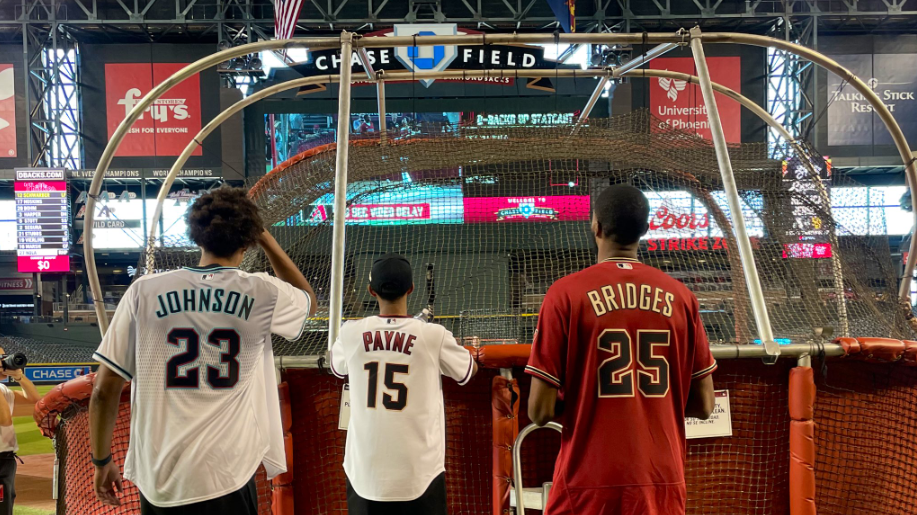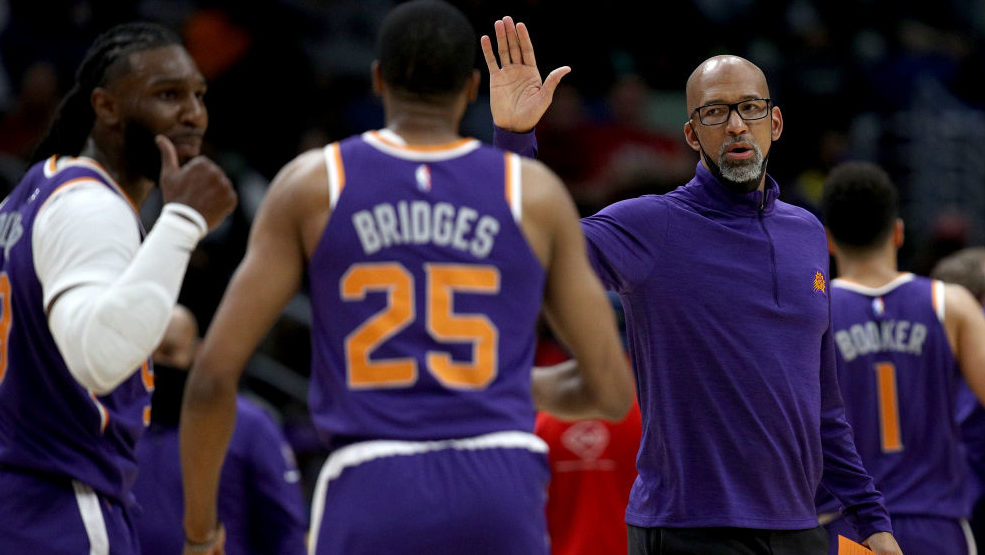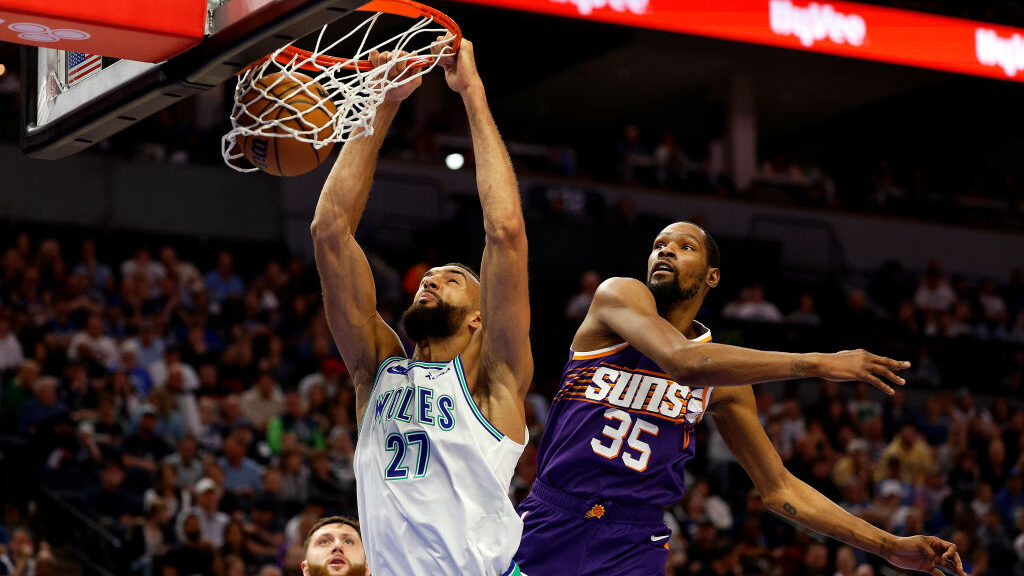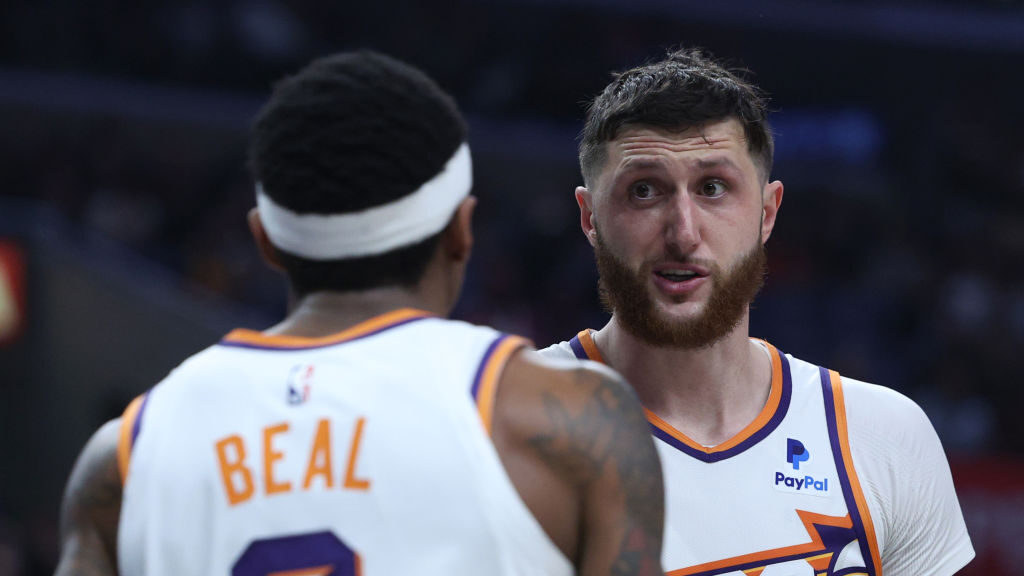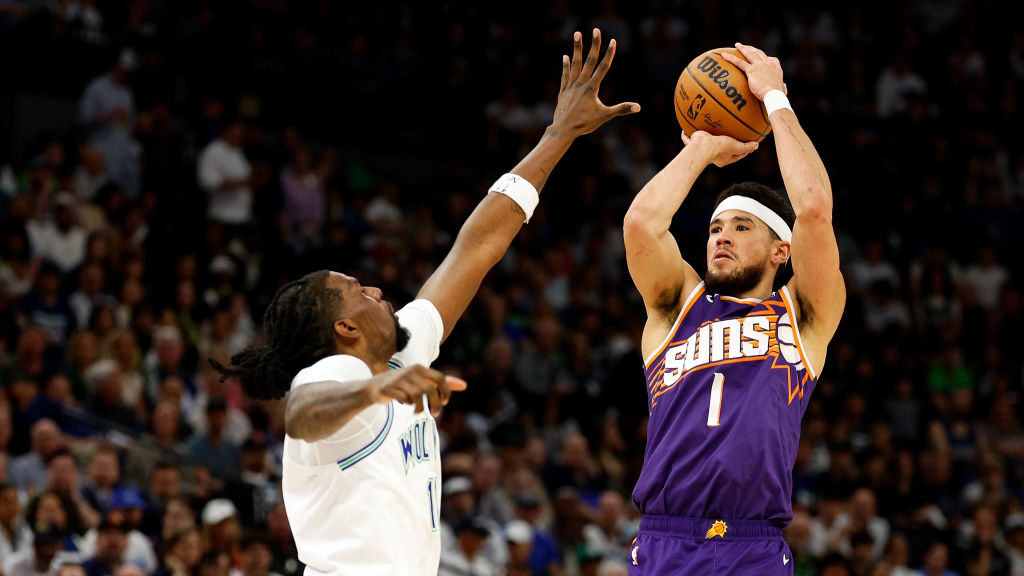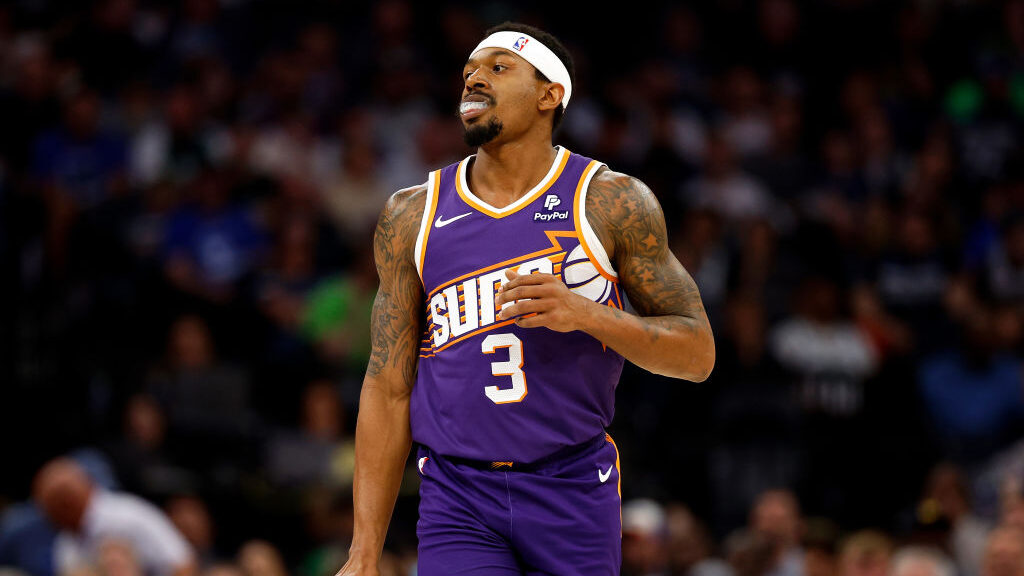Suns could reset in 2023-24 as NBA expects salary cap jump
Sep 12, 2022, 10:02 AM | Updated: 10:06 am
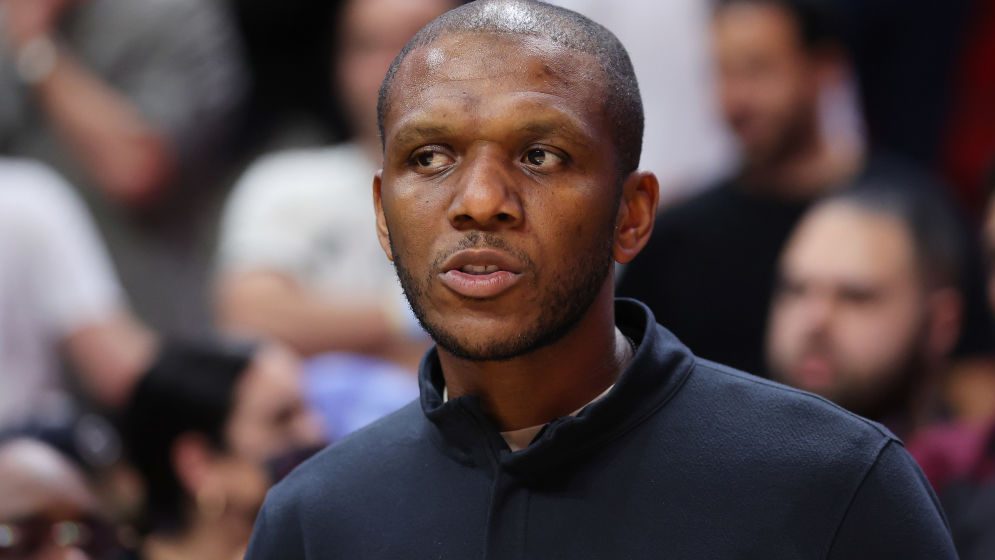
The NBA told its teams on Friday that it still expects to see a significant jump in the salary cap and tax level in the 2023-24 season.
Based on current projections, the cap will rise 8.4%, and the tax level will rise 7.8% over this season.
Both figures — $134 million for the salary cap in 2023-24, $162 million as the tax level — would set records, and both are $1 million higher than the league’s most recent projections made in June. The looming 2022-23 season has a cap of $123.655 million, a tax level of $150.267 million.
From the Phoenix Suns’ perspective, it still forces them to make decisions about resetting their roster.
Only six players are under contract for 2023-24: Devin Booker ($36 million), Deandre Ayton ($32.5 million), Chris Paul ($30.8 million, partially guaranteed until June 28, 2023), Mikal Bridges ($21.7 million), Landry Shamet ($10.3 million) and Cam Payne ($6.5 million, partially guaranteed until June 29, 2023).
Forward Cam Johnson would also be a restricted free agent if he and the team do not agree to an extension in the coming month-plus before this regular season begins.
If not and his cap hold of $17.7 million is on the books, the Suns could be more than $20 million above the projected $134 million salary cap (if we take about a $2 million free agent hold for center Jock Landale) and only about $8 million below the tax line with only seven roster spots filled.
All that said, next offseason will pose a tough question for Phoenix regarding Paul, and how this coming year goes for the future Hall of Fame point guard will obviously dictate how seriously the team might consider moving on. It’ll be important heading into 2023-24 with Booker’s current contract in 2024-25 jumping an estimated $14 million after he signed another supermax extension this summer.
For now, the focus is on this season.
Also Friday, the league told teams that total luxury tax payments for the coming season would be around $660 million, half of which would fund revenue sharing and the other half distributed in equal shares — about $17 million each — to the teams not currently projected to have to pay the tax. The Suns are a tax team this year.
But that tax number can, and almost certainly will, fluctuate wildly before a final calculation is made at the end of the regular season.
Training camps in the NBA begin later this month, with the regular season starting Oct. 18.
Arizona Sports’ Kevin Zimmerman and The Associated Press contributed to this story.


